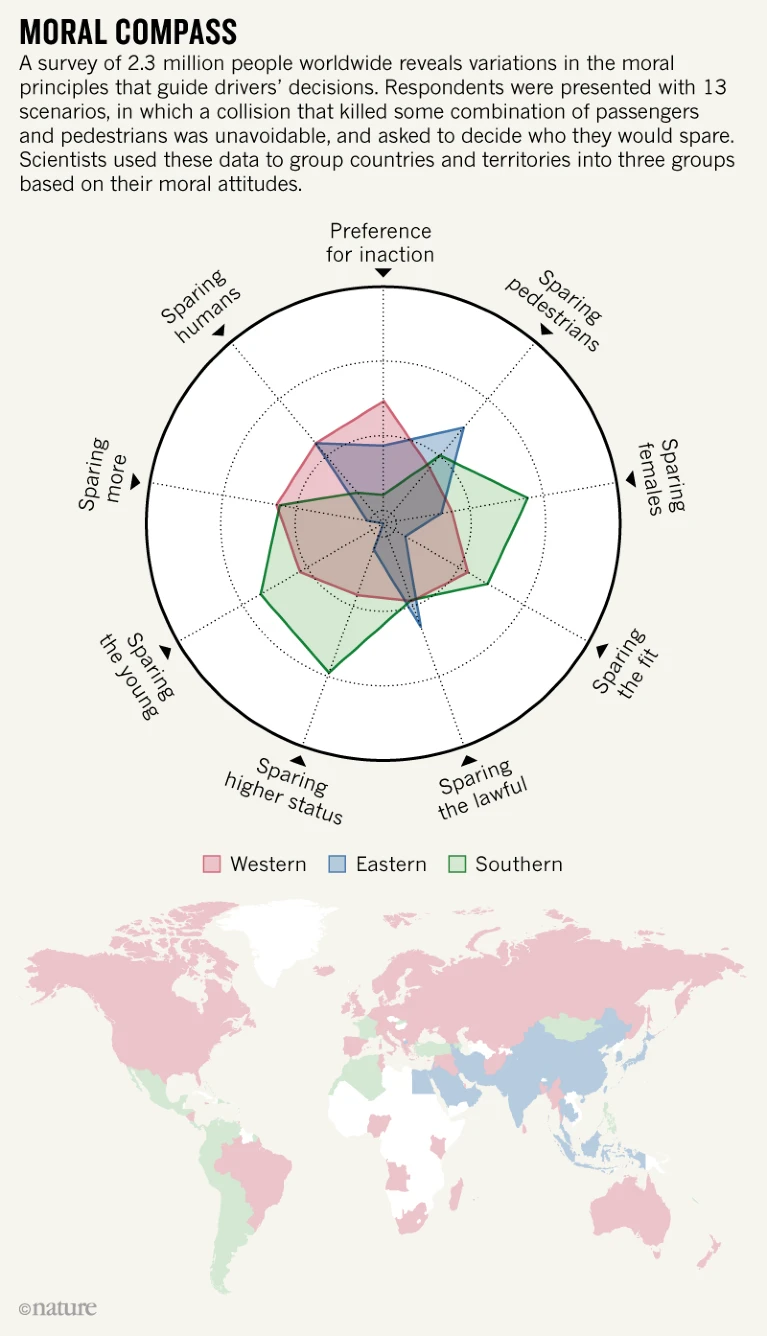Article Review #1 - Self-Driving Car Dilemmas Reveal that Moral Choices are not Universal
by. Jongwon Lee | 101 Views (88 Uniq Views) | almost 2 years ago
#ArticleReview #AI #SelfDrivingCar
Article Review of Self-Driving Car Dilemmas Reveal that Moral Choices are not Universal (Maxmen, 2018, Nature)
Maxmen discusses the survey-based experiment by Awad et al. (2018) to measure and group moral principles towards who they would spare with various categories such as gender, age, and social status. The survey revealed that they could group participants from worldwide by their moral choice into three different locations: Western, Eastern, and Southern. In Maxmen’s article, it was interesting to hear from Bryant Walker Smith that this experiment is meaningless because a situation where an AI car decides to spare between two different types of person is as rare as dealing with asteroid strikes. However, Barbara Wage, even though she believes AI cars will make fewer accidents compared to humans, claims that this experiment is still valuable. I believe AI cars will not only save time but also many lives although we cannot avoid some deaths caused by AI cars. We must trust the developers to improve the functionality of AI and encourage developers to avoid coding any bias of AI detecting and preferring certain groups of people. Also, if a choice must be made, although it will be very rare as Bryant mentioned, an algorithm to spare a certain person that belongs to the preferred one in that society should exist.
References
Awad, E., Dsouza, S., Kim, R. et al. The Moral Machine experiment. Nature 563, 59–64 (2018). https://doi.org/10.1038/s41586-018-0637-6
Maxmen A., A moral map for AI cars: Survey maps global variations in ethics for programming autonomous vehicles. Nature, 562, (2018). 469–470.
References
Awad, E., Dsouza, S., Kim, R. et al. The Moral Machine experiment. Nature 563, 59–64 (2018). https://doi.org/10.1038/s41586-018-0637-6
Maxmen A., A moral map for AI cars: Survey maps global variations in ethics for programming autonomous vehicles. Nature, 562, (2018). 469–470.
